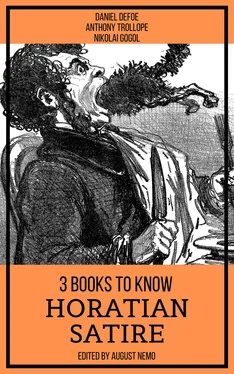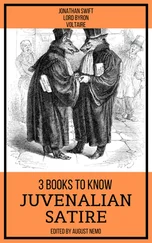"Hail, holy Ass!" the quiring angels sing;
"Priest of Unreason, and of Discords King!"
Great co-Creator, let Thy glory shine:
God made all else, the Mule, the Mule is thine!"
G.J.
AUCTIONEER, n. The man who proclaims with a hammer that he has picked a pocket with his tongue.
AUSTRALIA, n. A country lying in the South Sea, whose industrial and commercial development has been unspeakably retarded by an unfortunate dispute among geographers as to whether it is a continent or an island.
AVERNUS, n. The lake by which the ancients entered the infernal regions. The fact that access to the infernal regions was obtained by a lake is believed by the learned Marcus Ansello Scrutator to have suggested the Christian rite of baptism by immersion. This, however, has been shown by Lactantius to be an error.
Facilis descensus Averni,
The poet remarks; and the sense
Of it is that when down-hill I turn I
Will get more of punches than pence.
Jehal Dai Lupe
––––––––
BAAL, n. An old deity formerly much worshiped under various names. As Baal he was popular with the Phoenicians; as Belus or Bel he had the honor to be served by the priest Berosus, who wrote the famous account of the Deluge; as Babel he had a tower partly erected to his glory on the Plain of Shinar. From Babel comes our English word "babble." Under whatever name worshiped, Baal is the Sun-god. As Beelzebub he is the god of flies, which are begotten of the sun's rays on the stagnant water. In Physicia Baal is still worshiped as Bolus, and as Belly he is adored and served with abundant sacrifice by the priests of Guttledom.
BABE or BABY, n. A misshapen creature of no particular age, sex, or condition, chiefly remarkable for the violence of the sympathies and antipathies it excites in others, itself without sentiment or emotion. There have been famous babes; for example, little Moses, from whose adventure in the bulrushes the Egyptian hierophants of seven centuries before doubtless derived their idle tale of the child Osiris being preserved on a floating lotus leaf.
Ere babes were invented
The girls were contended.
Now man is tormented
Until to buy babes he has squandered
His money. And so I have pondered
This thing, and thought may be
'T were better that Baby
The First had been eagled or condored.
Ro Amil
BACCHUS, n. A convenient deity invented by the ancients as an excuse for getting drunk.
Is public worship, then, a sin,
That for devotions paid to Bacchus
The lictors dare to run us in,
And resolutely thump and whack us?
Jorace
BACK, n. That part of your friend which it is your privilege to contemplate in your adversity.
BACKBITE, v.t. To speak of a man as you find him when he can't find you.
BAIT, n. A preparation that renders the hook more palatable. The best kind is beauty.
BAPTISM, n. A sacred rite of such efficacy that he who finds himself in heaven without having undergone it will be unhappy forever. It is performed with water in two ways—by immersion, or plunging, and by aspersion, or sprinkling.
But whether the plan of immersion
Is better than simple aspersion
Let those immersed
And those aspersed
Decide by the Authorized Version,
And by matching their agues tertian.
G.J.
BAROMETER, n. An ingenious instrument which indicates what kind of weather we are having.
BARRACK, n. A house in which soldiers enjoy a portion of that of which it is their business to deprive others.
BASILISK, n. The cockatrice. A sort of serpent hatched from the egg of a cock. The basilisk had a bad eye, and its glance was fatal. Many infidels deny this creature's existence, but Semprello Aurator saw and handled one that had been blinded by lightning as a punishment for having fatally gazed on a lady of rank whom Jupiter loved. Juno afterward restored the reptile's sight and hid it in a cave. Nothing is so well attested by the ancients as the existence of the basilisk, but the cocks have stopped laying.
BASTINADO, n. The act of walking on wood without exertion.
BATH, n. A kind of mystic ceremony substituted for religious worship, with what spiritual efficacy has not been determined.
The man who taketh a steam bath
He loseth all the skin he hath,
And, for he's boiled a brilliant red,
Thinketh to cleanliness he's wed,
Forgetting that his lungs he's soiling
With dirty vapors of the boiling.
Richard Gwow
BATTLE, n. A method of untying with the teeth of a political knot that would not yield to the tongue.
BEARD, n. The hair that is commonly cut off by those who justly execrate the absurd Chinese custom of shaving the head.
BEAUTY, n. The power by which a woman charms a lover and terrifies a husband.
BEFRIEND, v.t. To make an ingrate.
BEG, v. To ask for something with an earnestness proportioned to the belief that it will not be given.
Who is that, father?
A mendicant, child,
Haggard, morose, and unaffable—wild!
See how he glares through the bars of his cell!
With Citizen Mendicant all is not well.
Why did they put him there, father?
Because
Obeying his belly he struck at the laws.
His belly?
Oh, well, he was starving, my boy—
A state in which, doubtless, there's little of joy.
No bite had he eaten for days, and his cry
Was "Bread!" ever "Bread!"
What's the matter with pie?
With little to wear, he had nothing to sell;
To beg was unlawful—improper as well.
Why didn't he work?
He would even have done that,
But men said: "Get out!" and the State remarked: "Scat!"
I mention these incidents merely to show
That the vengeance he took was uncommonly low.
Revenge, at the best, is the act of a Siou,
But for trifles—
Pray what did bad Mendicant do?
Stole two loaves of bread to replenish his lack
And tuck out the belly that clung to his back.
Is that all father dear?
There's little to tell:
They sent him to jail, and they'll send him to—well,
The company's better than here we can boast,
And there's—
Bread for the needy, dear father?
Um—toast.
Atka Mip
BEGGAR, n. One who has relied on the assistance of his friends.
BEHAVIOR, n. Conduct, as determined, not by principle, but by breeding. The word seems to be somewhat loosely used in Dr. Jamrach Holobom's translation of the following lines from the Dies Irae:
Recordare, Jesu pie,
Quod sum causa tuae viae.
Ne me perdas illa die.
Pray remember, sacred Savior,
Whose the thoughtless hand that gave your
Death-blow. Pardon such behavior.
BELLADONNA, n. In Italian a beautiful lady; in English a deadly poison. A striking example of the essential identity of the two tongues.
BENEDICTINES, n. An order of monks otherwise known as black friars.
She thought it a crow, but it turn out to be
A monk of St. Benedict croaking a text.
"Here's one of an order of cooks," said she—
"Black friars in this world, fried black in the next."
"The Devil on Earth" (London, 1712)
BENEFACTOR, n. One who makes heavy purchases of ingratitude, without, however, materially affecting the price, which is still within the means of all.
BERENICE'S HAIR, n. A constellation (Coma Berenices) named in honor of one who sacrificed her hair to save her husband.
Her locks an ancient lady gave
Her loving husband's life to save;
And men—they honored so the dame—
Upon some stars bestowed her name.
But to our modern married fair,
Who'd give their lords to save their hair,
No stellar recognition's given.
Читать дальше












